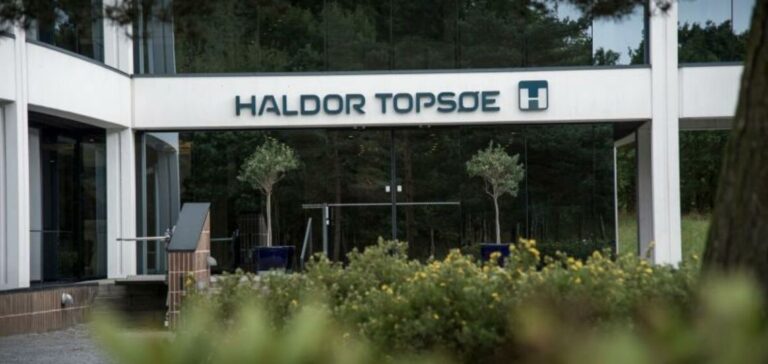Topsoe, world leader in carbon reduction technologies, has teamed up with ABB and Fluor to design a SOEC (Solid Oxide Electrolysis Cells) plant in the United States. The plant, planned for Chesterfield, Virginia, will use a standardized approach to reduce costs, improve safety and ensure efficient project execution.
Project status and outlook
Topsoe has already begun construction of its first SOEC plant in Herning, Denmark, which should be operational by the end of 2024. Building on this experience, the alliance plans to build the new plant in Virginia by 2028, subject to a final investment decision. According to forecasts, annual hydrogen production could reach 38 million tonnes by 2030, with a significant proportion coming from electrolysers. In France, the first electrolyser plant was inaugurated in Belfort in 2024.
Technology and Innovation
Topsoe’s SOEC technology, with its modular design, operates at higher temperatures than other electrolyser technologies, enabling large-scale industrial production. This technology enables more efficient hydrogen production than conventional technologies, thanks to the use of waste heat from downstream processes.
Partner declarations
Kim Hedegaard, CEO Power-to-X at Topsoe, stressed the importance of this alliance for increasing electrolyzer capacity and improving industrial production. Brandon Spencer, President of ABB Energy Industries, insisted on the need for formal collaborations to progress towards industrial objectives. Richard Meserole, President of Fluor’s Advanced Technologies & Life Sciences division, expressed Fluor’s pride in being part of this technological collaboration.
Impact on Industry
The alliance between Topsoe, ABB and Fluor demonstrates a collaborative approach to solving industrial challenges. By standardizing processes and sharing expertise, the three companies aim to make electrolyser production more efficient and cost-effective. This initiative is part of a global context in which demand for efficient industrial solutions is growing.
The increased electrolyzer production capacity provided by these new plants will enable us to meet growing demand in a variety of industries. The alliance’s innovative, collaborative approach could serve as a model for other similar projects around the world.






















